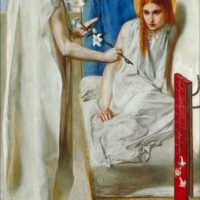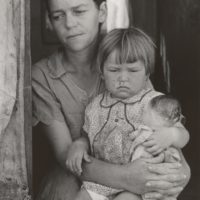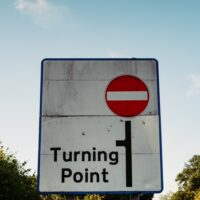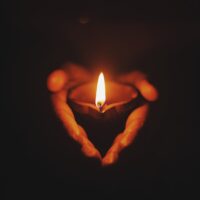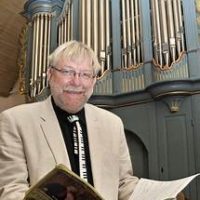Good teacher, what do I have to do?
The man who is asking this question in today’s gospel lesson is a man who is used to doing. We hear he is a man with many possessions, so presumably he is someone who has to do something in order to acquire or at least maintain his wealth. This man who comes to Jesus knows that you have to do something in order to get results.
We also hear that this rich man is a devout follower of God in the Jewish faith – when Jesus asks him if he has kept the commandments we know as the 10 commandments, the man answers that he has kept those laws from a very young age. And for this man, following God mostly seems to be doing something.
What do I have to do? I think we can relate to this young man’s question. We all come from cultures and live in a society where doing and productivity are valued highly. You gotta make something out of yourself, right?
The urge to do even effects our young people. Little kids already tend to be overscheduled, because as parents and grandparents, we want to give them every chance to develop their potential. Playtime often falls by the wayside. Teenagers are under immense stress, because they feel they can’t fulfill expectations. A college application that stands out these days has to have at least 5 extracurricular activities on it. And many of these young people don’t get a chance to figure out who they are, because they are buried in activities, and distracted by doing.
My point is: we know what it’s like to do, do, do, especially in the technology driven economy today and in this part of the world. I would go so far as to say that we even primarily define ourselves in our society by what we do. Just think about a social situation where you introduce yourself to a stranger. What is usually the first question after you get introduced? ‘So, what do you do?’ Or, if you are retired, ‘What did you use to do?’
Now of course a very busy lifestyle has its setbacks. It takes a toll on partnerships and family life and on life in community, and it’s physically unhealthy. But it has emotional consequences as well. What happens to us if we can’t do – if can’t be productive? What happens if we lose a job, or retire, or get ill? What, if we can’t define ourselves through what we do anymore? I think we all know people who have trouble adjusting to a different life, after retirement, for example. There are those who feel useless if they are not out in the workforce anymore. People who lose a job often fall into a depression.
I would so far as to say that in our society, we are rather defined as human doings than as human beings.
What do I have to do? What do I have to do to have eternal life? This is the question the young man in the gospel asks Jesus, and on the surface it’s an easy question. There must be something we can do, this is how the world works – we do something, and then there are results. There must be ways to do something to please God and to get what I desire. And at first it seems that Jesus gives a fairly easy answer to this question: follow God’s commandments. Done, good teacher! But Jesus, looking at him, loved him, and said, ‘You lack one thing – go, sell your possessions, give them to the poor, and then come, follow me.’ And the young man went away sad, because he had many possessions.
Now we may think it’s about doing again. Go, sell your possessions, give them to the poor, come, follow me. After all, these are all verbs, and a verb is what we do. But Jesus digs deeper here. First of all, notice that Jesus’ love doesn’t depend on what the young man does – or doesn’t do. Jesus loves him before it is clear how this man would decide. Jesus loves the man for what, or better, for who he is – a child of God, a child of God who loves God and wants to please God.
Jesus challenges the young man to be re-defined – to be defined not by his wealth and success, not by his diligent obedience to God’s law, not by his doing and his own power and might – but rather by surrendering to Jesus, by following a new way, by refocusing. By giving up power over his own life and handing it over to God. By becoming a part of the kingdom of God, which already sprouts and grows in this world and in this lifetime. To entrust himself to a power that catches us in times we realize that there is nothing we can do about a situation.
In essence, Jesus challenges the man to think about who he is. The question at the heart of the matter is not, ‘What do I have to do?’, but, ‘Where do I belong?’ and, ‘Who am I – whose am I?’
Now these questions are quite scary, if you think about it. When we peel away all the doing in our life, we may discover that we don’t really know who we are, who we want to be, where we truly belong. When we stop doing, there may be the feeling of emptiness.
Now the pandemic caused many to but on the breaks and stop doing – or at least do less than usual, especially during those early days in lockdown. And it is interesting how people reacted. Some just filled the void with doing new stuff – like taking a master class on something or a course online. Now I shouldn’t poo-poo this, since among such people were those who discovered or re-discovered a passion of theirs by doing so.
I know of people who downright fell into a depression as they were confined and couldn’t do as usual.
And then there have been those who used this time of discerning their lives. What is important to me? What are the relationships that give me strength during this time of crisis? Do I really want to do this job for the rest of my life? Do I really want to live in an area that is so driven – and expensive? I happen to know quite a few families, and, yes, that includes families who used to come to St. Matthew’s, who moved away from the Bay Area over the course of the last 18 months. And, yes, I am aware that dealing with these questions is much easier when you are privileged and have a generous income. Many poor people don’t have the luxury of taking a break from doing and going on a journey of self-discovery.
But back to the gospel. What Jesus is trying to teach the rich man is that there is something that gives us value beyond our doing and our accomplishments. We are God’s, and as such we are God’s children – beloved, forgiven, invited to be part of God’s kingdom that sprouts and grows in our midst already, heirs of life eternal, which already starts here and now. Jesus, looking at each and every one of us, loves us – and this love does not depend on what we do or don’t do. However, this love and acceptance liberates us to share what we have received from God in word and deed.
A great symbol for God’s love and acceptance, no matter what, is baptism. Baptism is the great equalizer between all human beings – young and old, rich and poor, man, woman or anything in between, no matter, what background or race or nationality we come from, no matter, what abilities we have, no matter, what we do. In baptism, we all become God’s beloved children and are valued as such. In baptism, the first become the last and the last become first.
And just think about how we baptize little children in our tradition. An infant can’t do much yet. An infant just is. God embraces such a child – just as much as God embraces each and every one of us with all our abilities and our limitations. No child of God has an advantage over the other in the eyes of God.
So I invite you to think about it: who are you? Whose are you?
Remember: you are not defined by what you do. Nobody is, for that matter, in the eyes of God. And so I hope that we, as followers of Christ, can look at all of God’s children, no matter where they are in life, and love them, regardless of what they do or don’t do.
We are all beloved. We are all forgiven. And there is nothing we could do about that.
This post is also available in: German


